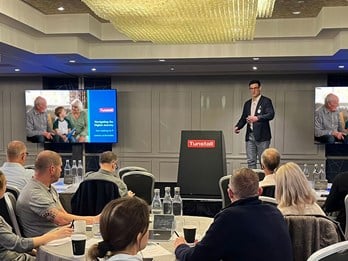We have invested significantly in telecare over last five years, working with Tunstall, and Progress Housing Group to help keep people safe, improve their outcomes and in turn provide more cost effective care. We’ve seen where it can save lives, and support family and other informal carers, giving them peace of mind. Telecare triggers a quicker response in an emergency and reassures people who know their relative is safer and living more independently at home, where the majority of older people prefer to be.
Tony Pounder, Director of Adult Services, Lancashire County Council
A story from the UK and Spain
The analysis includes new academic research and considers the benefits of proactive, reactive and personalised use of technology to support ageing populations in their own homes, in Spain and the UK.
In the UK, the York Health Economics Consortium (YHEC) has studied the impact of Lancashire County Council’s advanced reactive telecare (emergency response) programme - one of the largest of its kind in the UK.
Research from Spain - a global leader in telecare - includes analysis by the Autonomous University of Barcelona, and looks at the results of its proactive and personalised (preventative) telecare approach.
New social care insights
Commissioned by Tunstall, the report includes three separate studies and findings include:
- People staying independent at home for 8.6 months longer
- Emergency calls reduced by 54% and ambulance mobilisations by 36%
- £4,500 per person avoided in other social care costs annually
Until now there has been lack of independent analysis on the impact telecare is having on health and social care systems – and this is the first time the socio-economic value has been studied in this way. It proves the benefits that can be realised, and that when technology is deployed in a person-centred way, it can create a more sustainable and resilient health and care system.
Zillah Moore, Marketing Director UK & Ireland, Tunstall Healthcare



